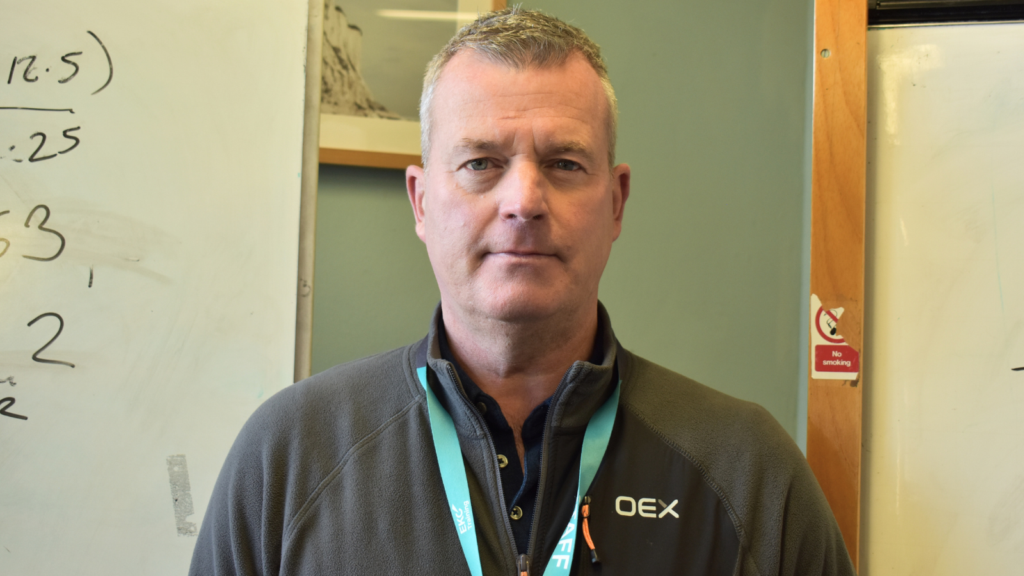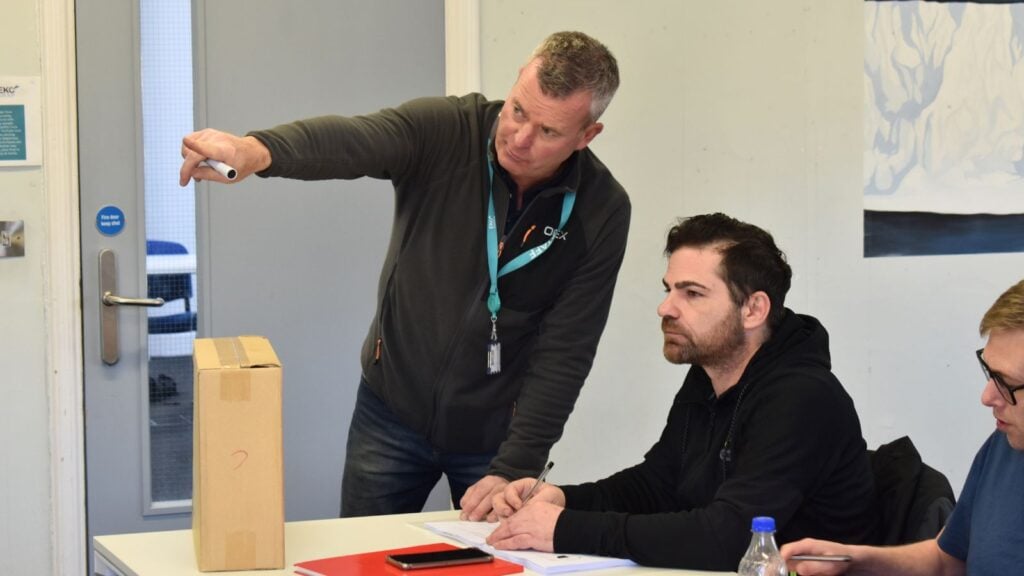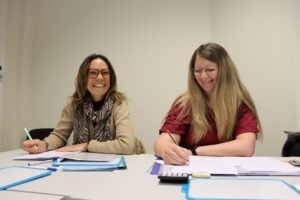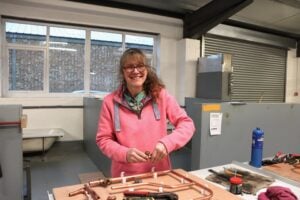Meet Jason Rose, one of our Rail Trainer Assessors at EKC Dover Training Centre and EKC Rail Engineering Training Centre in Shepherdswell.
Our EKC Training courses are fantastic way for adults to learn new skills to help them get back into work, learn something new, or develop in their existing jobs. We offer specialist Rail training courses at EKC Rail Engineering Training Centre which will prepare you for an exciting career in the Rail sector.
We spoke with Jason to find out more about the Rail course, his background and what he enjoys about working as a Rail Trainer Assessor.

Jason, can you tell us about your background and how you came to work with EKC Group?
I’ve worked for over 10 years in the industry working for firms such as Burgess Rail and as a Rail Consultant for Heritage Railways.
In addition, I’ve been delivering rail training programmes at East Kent Railway at Shepherdswell for 12 years.
Brilliant. Could you tell us about the Rail course you run here?
The course is an eight-week programme. Six weeks is the delivery of the NVQ, which is a blend of practical and theory. All the practical assessments are held at operational Heritage railway; East Kent Railway in Shepherdswell. Upon successful completion of that programme, we invite each candidate to attend Network Rail Safety Critical Training that allows them to work on or near the line. So, the PTS (Personal Track Safety) means they can enter the workplace and carry out duties.
But in addition to that, after successful completion of a PTS, they’re invited to do track induction, which means they can alter track geometry. That’s an intensive week’s programme where they learn all the practical skills, they need and all the theory they need for altering track to change sleepers, change rail. So basically, the NVQ provides them with, provides them with the practical knowledge and theory before they do network rail training. So, and then they’re work ready.
So, we have employers that will come to myself and Keira my fellow Trainer and ask when groups are finishing because they’d like to come and talk to them and to offer them employment opportunities. It’s a unique situation that after the end of an eight-week programme, we can put people out to work. And the industry is very buoyant and there’s a demand for skilled labour. So, we have about five or six local rail employers who will come to us to talk to individuals on completion of the programme. So, it’s a great situation to be in.

What advice would you give to students that are looking to apply?
I think always good to do a bit of background reading and realise the nature of the task because track maintenance is unfortunately antisocial hours, it’s working weekends and it’s working in all weather conditions. I think sometimes the physical element of the training can catch a few people out. However, we never judge a book by its cover. We’ve got people from all walks of life; all shapes and sizes who work well as a team and it’s about teamwork and it’s about just working smart but there is a physical aspect to it.
That’s not to say that people who complete the course don’t go on to do a variety of different roles, from Administration to Health and Safety. We’ve even had people who have gone on to be train drivers. So, it’s the first few runs of the ladder for the industry. But whilst we’re training, we do ask a lot from our students because we are working on a railway that adheres to the same rules as Network Rail, and we have passengers running on that train at weekends. So, everything needs to be safe, everything needs to be correct. So, we ask our students to turn up for work and that’s the way we deliver the program.
What’s your favourite thing about teaching?
No two days are the same! It’s nice to deal with people from all walks of life, from all age groups and sometimes when you get feedback like ‘I was never very good at school’, but suddenly the penny’s dropping with Mathematics or a bit of problem solving. It’s nice to be able to make people feel calm and make people feel confident about their own abilities. This course is not strictly about Mathematics, but we want them to be an all-rounder and comfortable using measurements. To get feedback that it doesn’t feel like school for someone who hasn’t been in this environment for say, 20 odd years is a good feeling. If we can bring that out and make them feel confident, that’s great.
Lastly, what’s the best part about working at Dover Training Centre?
It’s a good team spirit; you’re made to feel welcome from day one. I don’t come from a traditional teaching background, so people have been very supportive in my journey to become a trainer assessor. I’m currently doing my IQA, and I feel that I can always knock on someone’s door, and someone will give me advice and guidance. So, it’s a good team here, they’ve made me feel very welcome.
Follow the links to learn more about the courses we offer at EKC Rail Engineering Training Centre or EKC Training Dover Centre.


